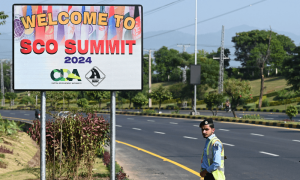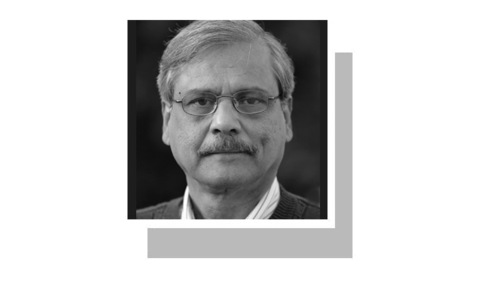THE recent report from Justice Project Pakistan shows how urgently Pakistan needs to rethink its use of the death penalty — a punishment this paper opposes. With nearly 6,000 prisoners on death row, the nation’s continued use of capital punishment is an indictment of its justice system. It is time to abolish this outdated form of punishment once and for all. The report highlights that no executions have taken place since 2019 and the number of people sentenced to death continues to rise. This growing death-row population reflects not a justice system functioning well, but one that is overwhelmed by inefficiency and delays. For many prisoners, the years spent awaiting execution are filled with uncertainty and immense psychological suffering. Rather than serving justice, the death penalty perpetuates a cycle of despair. Regional disparities highlighted in the report are especially troubling. Punjab and KP account for the overwhelming majority of death-row inmates, with 2,505 and 2,311 prisoners, respectively. In contrast, Sindh has 557 and Balochistan, despite its smaller population, houses 398 death-row inmates. This discrepancy in sentencing across provinces suggests that the application of the death penalty is arbitrary and influenced by factors beyond the severity of the crimes.
A punishment so irreversible must never be handed down in such an inconsistent and inequitable manner. Perhaps the most egregious aspect of the current system is the treatment of mentally ill prisoners. Despite the Safia Bano ruling, which prohibits the execution of individuals with psychosocial disabilities, many such prisoners remain on death row. Further, the case of Sheraz Butt, who died in prison while awaiting an appeal despite clear evidence of his severe mental illness, exemplifies the profound inhumanity of this system. There can be no justification for a punishment that ignores such fundamental human rights. While recent reforms, such as the 2023 amendment abolishing the death penalty for drug offences, are steps in the right direction, they do not go far enough. The state continues to impose death sentences for crimes beyond the “most serious”, in violation of international human rights standards. Pakistan must join the growing global consensus that the death penalty has no place in a humane justice system. It neither deters crime nor delivers justice. True reform lies in focusing on rehabilitation, ensuring fair trials, and protecting the right to life.
Published in Dawn, October 14th, 2024










































Dear visitor, the comments section is undergoing an overhaul and will return soon.